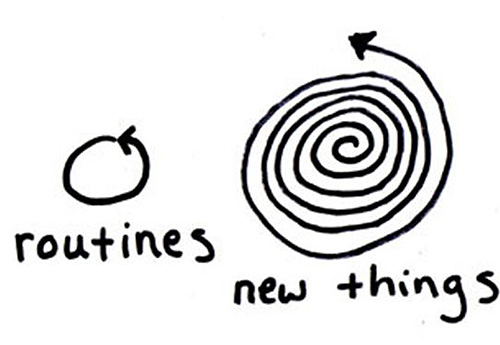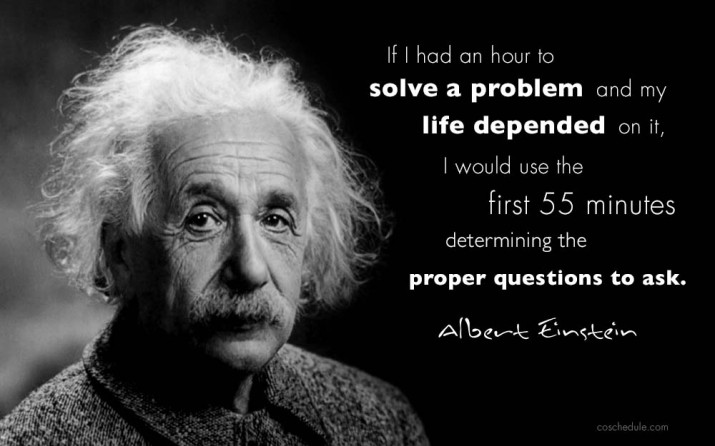I don't have enough time in my day to teach my kids all of the really important things I want them to know (not to mention all the other nice things I want them to know). So I am always playing with different ways about where to fit things in, how to teach them, and reconsidering the why.
I have pondered on what I want my kids to know by the time they leave my home to face the world.
I want them to:
1) Know what truth (hearing God's voice) feels like in their hearts and minds (having an uplifting home environment, inspiring music, inspiring stories, scripture study)
2) Have a desire to seek that truth to lift themselves, families, and all of humanity (flows from knowing what truth feels like and testing it in their lives)
3) Know how to seek it and how to solve the problems they encounter. I want them to know what tools are available and how to fine-tune those tools (personal revelation; words of the prophets; experience; the experience of others through books, research or discussion; mathematics; science) and to diligently use them.
4) Be able to communicate that truth in a way that changes/inspires hearts (language arts, art, music, drama, speech or other skills that they feel drawn to developing)
In a previous post, I talked about The Habit that Changes Everything (I am loving what is happening to my home as I have been applying this habit, btw) I am noticing that a principle that I learned as I studied habits is permeating a lot of other aspects of my life in how I can best teach my kids these important things.
William James said that a habit becomes ingrained into our being through either diligent repetition or through intense experience with it. He was referring to the pathways we are forming in our brain. Repetition carves out these pathways in time. Intensity carves them out more quickly. Then our thoughts follow the pathways we have carved out so that they become automatic and we are free to think of higher things (or the next line in our line-upon-line tutoring).
I realized this really applies to everything we learn - if we diligently seek and have the intense experience of discovery - we understand and retain the things we learn. We can also learn it through a lot of repetition, but it just takes more time and the learning tends to be superficial (just the "how's and not the "why's")
Since time is a precious commodity to me, I have been searching for ways to help my kids diligently seek and discover in their education. Instead of lecturing about the same thing over and over until they get it, I like to ask questions such as, "What does that quote teach us?" "Why is that action so important?" "What can we learn about our nature (or human nature) from that experience or story?" "What principle does that scripture teach?" "How can we better live because of this?"
Questions help them learn to seek. And questions about their answers help them seek more deeply. And deep thought and connections create ah-has and enlightening experiences that ingrain truth deep in their hearts and minds.
I have been doing this kind of teaching for a while with seeking and finding principles, but I am just leaning that it can apply to the learning of important skills as well.
I am taking a class right now about teaching math. She is teaching us that if a child "discovers" a mathematical truth, that it will become part of them and they won't forget it. Usually we teach math by repetition. This works too (at least for knowing how to do things) - I still remember how to do some algebra even though I rarely use it because I did so much of it. I don't exactly know why I do the things I do when I solve an algebra problem, but I do still know how to do it (after a little review). Repetition takes a of time though, and it is not really accomplishing the higher goal of studying mathematics (thinking how creatively problem solve).
It makes sense that we teach through repetition in a classroom with a lot of children. Enough repetition will ensure that pretty much everyone will learn a concept. Teaching a child to discover truth for themselves takes more one-on-one questioning and intense thought. We just can't ensure this happens with 30 kids and only one teacher (unless she is a super-teacher like my mom)
However, when we have our kids home after school (of if we homeschool), we have the opportunity to teach them how to think and to have these exciting learning experiences. Instead of lecturing or telling them how to do things all of the time, we encourage them to figure things out - to solve their own problems - logically, through past experience, by looking at the experience of others, revelation, reason, applying the principles they know and by teaching them to find new and true principles in all they do.
Spice has a teacher right now that sometimes teaches things she doesn't always agree with. When we were driving on Thursday morning she said to me, "I realize that some of the things he says are his opinion and not necessarily true principles that apply to everyone, but that is okay, it is interesting to hear his opinion about different things." I was glad she was able to differentiate the difference between opinion and principle!
So right now, with math, I ask a lot of questions and we discover the "why" together and we write down and modify our discoveries after we test them (it helps that MathInspirations has a class and is developing a curriculum to better help me do this with my limited math knowledge!) I'm sure I could have discovered the principles myself in time, but finding where to look and how to go about it would have taken so much time because my math education was so shallow, so I am very grateful that Emily Dyke has done much of the work for me to point me in the right direction of discovery.
This is fun with math because it is so pure, but it has been good to apply it even with man-made language arts rules - we look at passages and figure out grammar/spelling/punctuation rules and write then down. I tell the kids to bring a book they're reading or we'll look at a poem or scripture we are memorizing, and I ask, "so what are the quotation marks for?" Or, "Why did they use the commas in that paragraph?" And we write down quotation mark rules or comma rules as we discover them (It helps that I have Strunk and White's Writing Book and Words their Way Spelling books since I don't know all of the rules myself!) I'm sure any spelling book or grammar book with that lists the rules would work just as well. I'm sure I could hand them Strunk and White's book and tell them to read it, but they would have to read it an awful lot of times to remember the rules. When they make the effort to discover them themselves - they actually remember what they learned!
I find myself teaching this way in most of my teaching experiences now. I substituted in my church's Relief Society class the other day and I came prepared with quotes and questions about the quotes. I hardly had to say anything. The questions inspired thought and they had a great discussion about the principles they had learned about repentance and changing their hearts. I am sure they learned a lot more then if I had stood there and told them what I had learned.
What are your experiences with intensity vs repetition? Do you have any good resources that help children learn how to discover?
*For image credit, click on the images
I love reading in the Bible about the questions the Savior asked. Here is an example:





No comments:
Post a Comment